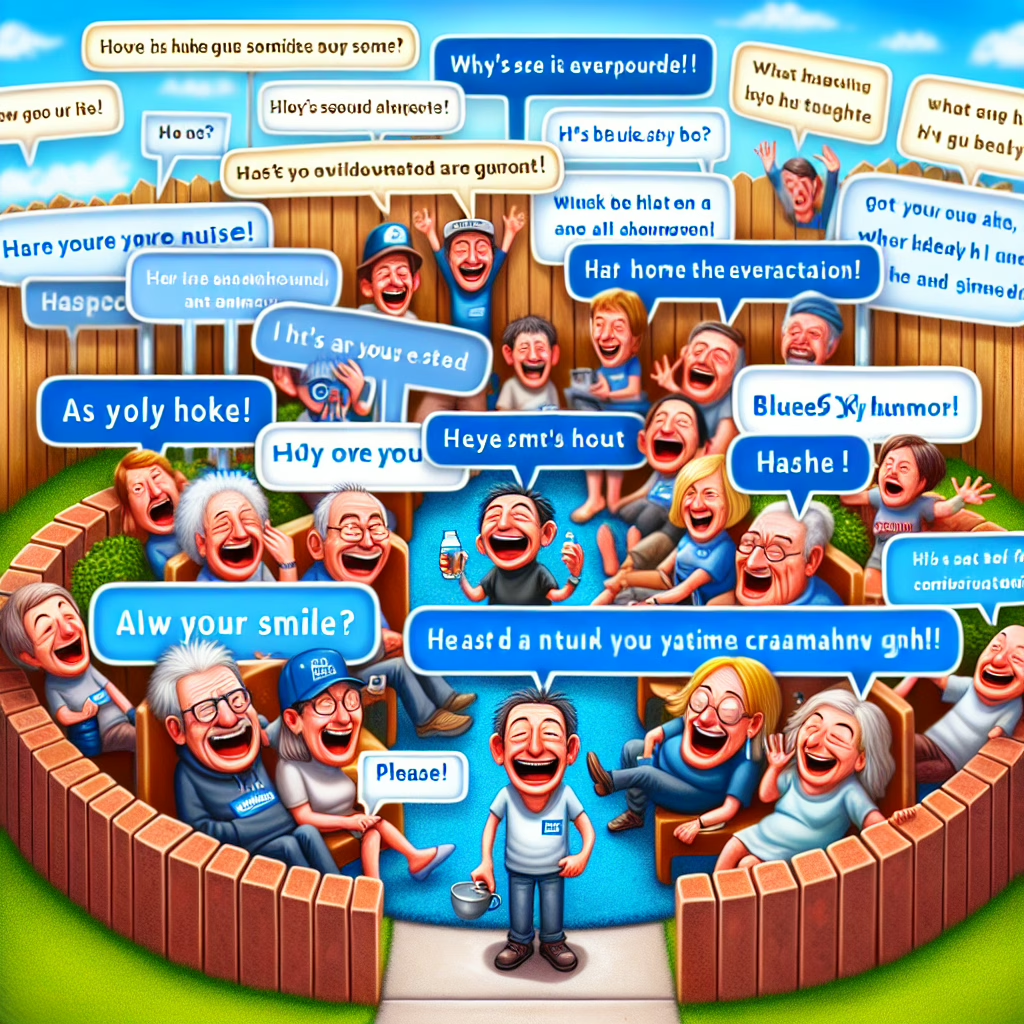Ah, Bluesky! The platform that’s trying to redefine social media with a sprinkle of humor and a dash of chaos. In a world where tweets can spark debates hotter than a summer barbecue, it’s no surprise that Bluesky has found itself at the intersection of humor and online discourse. But can it really take a joke? Let’s dive into the quirky realm of Bluesky and explore its relationship with humor and user engagement.
Bluesky: A Platform with Personality
Launched as a promising alternative to mainstream social media giants, Bluesky quickly caught the attention of users looking for a breath of fresh air. With its unique approach, it aims to create an environment where creativity flows freely, much like an overzealous fountain pen on a new notebook page. However, as any comedian will tell you, not everyone appreciates a good punchline.
In recent months, several users have tested the waters of humor on Bluesky, only to find themselves swimming in shark-infested waters—metaphorically speaking, of course! The platform’s moderation team seems to be on high alert, sometimes interpreting lighthearted jokes as serious offenses. Talk about taking things too literally!
When Jokes Go Awry: The Humor Dilemma
Imagine posting a witty quip about the latest trends in cat memes or sharing a playful jab at your own bad habits. Instead of chuckles, you receive a notification that your post has been flagged for violating community guidelines. Ouch! That’s the kind of surprise that makes even the most seasoned jokester rethink their material.
While moderation is essential for maintaining a respectful community, it raises an important question: how do we balance humor and decorum? The truth is, humor is subjective. What tickles one person’s funny bone might leave another scratching their head in confusion. So how can Bluesky ensure it doesn’t become the social media equivalent of that overly serious uncle at family gatherings?
The Quest for Community Engagement
One could argue that humor fosters community engagement better than any algorithm can. After all, laughter is contagious! When users feel free to express themselves—quirks, jokes, and all—they’re more likely to stick around for the long haul. This brings us back to Bluesky’s challenge: creating an inviting atmosphere while keeping the peace.
To tackle this conundrum, Bluesky might consider implementing clearer guidelines that distinguish between harmless banter and harmful content. By doing so, users can enjoy the freedom to poke fun without fearing they’ll end up in social media timeout.
The Silver Lining: Humor as a Learning Tool
Let’s not forget that humor can serve as an incredible learning tool! Platforms like Bluesky could harness this power by encouraging users to engage with light-hearted content while educating them about online etiquette. A little laughter goes a long way in making important points memorable.
Consider creating campaigns that celebrate clever humor—perhaps even awards for the funniest posts! This would not only foster creativity but also strengthen community ties. Imagine scrolling through your feed and coming across hilarious content that sparks joy instead of frowns!
The Road Ahead for Bluesky
The future looks bright for Bluesky if it can find the right balance between maintaining community standards and allowing for playful expression. As we move into 2025 and beyond, embracing humor could be key to fostering a vibrant user experience that attracts people from all walks of life.
At the end of the day, every platform has its growing pains. If Bluesky can learn to laugh at itself (and encourage its users to do so), it might just become the go-to spot for those seeking both connection and chuckles in our increasingly serious digital landscape.
So let’s keep our fingers crossed that Bluesky finds its comedic rhythm while navigating this wild world of social media. After all, who doesn’t love a good laugh?
We’d love to hear your thoughts! Have you tried out Bluesky? Did you find it funny or just frustrating? Share your experiences in the comments below!
A special thanks to Wired for their original article that inspired this piece!

